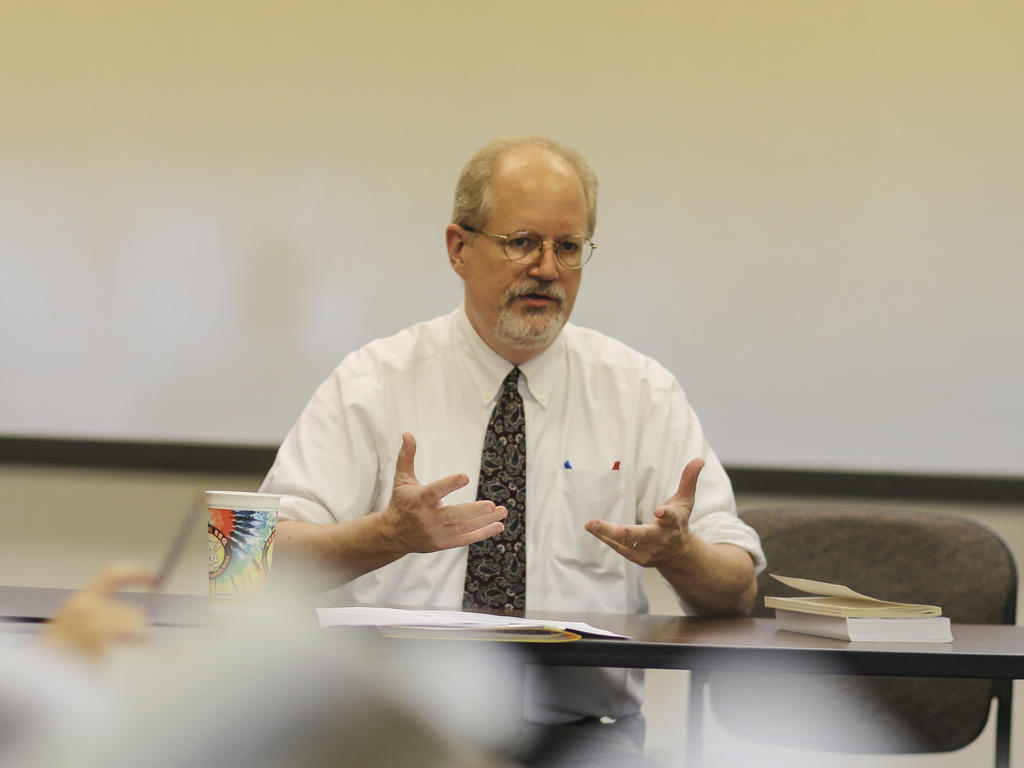By Dr. John E. Murray
The Weekly Standard
The division between vocational and liberal arts education, which began during the 19th century with the advent of the land-grant state universities in the United States, is today tilting further and further in favor of the vocational. Even within the liberal arts, more and more students are, in [Andrew] Delbanco’s words, “fleeing from ‘useless’ subjects to ‘marketable’ subjects such as economics,” in the hope that this will lend them the practical credentials and cachets that might impress prospective employers.
“Who Killed the Liberal Arts? And Why We Should Care”
--Joseph Epstein
As much as I admire Joseph Epstein’s essays, including this otherwise superb one from 2012, he is really addressing a non-event here. Quantitatively, the liberal arts are fine. Data from the National Center for Education Statistics indicate that from 1995 to 2012 (most recent available) about two-fifths of bachelor’s degrees were awarded in the liberal arts and sciences. No trend was visible, and the stability (between 37 and 39 percent) was remarkable. Trends in business degrees were actually slightly down, from 22 percent of all bachelor’s degrees in 1996 to 20 percent in 2012. There has been no flight from any field into business.
What follows is my own reading on the liberal arts, which I aim to carry into my section of Humanities 201 (the Search for Values in the Light of Western History and Religion). What we deeply know is fundamentally historical. Without the perspective that time provides for reading, thinking, and debating, the present is simply too immediate to allow us to distinguish the important from the ephemeral. Here is an example from the director of American studies at Columbia University Andrew Delbanco’s bête noire, economics. In the middle-third of the past century, most economists would have proposed that by far the most important economic writer of the time was John Maynard Keynes. There were good reasons to believe that was so, such as the consequences of the 1962 Kennedy tax cut. But by the time of the Carter era stagflation, Keynesian theory was in tatters. Understanding the succession of economic knowledge from new, to almost certainly true, to nearly useless, may provide some well-earned skepticism of scholarly fads.
The liberal arts are founded on the books that constitute the great Western tradition. Little that we really need to know does not appear in the great books that we read in Search. Plenty of what makes economics useful can be found in Wealth of Nations, and much else besides. How to manage people in a large firm really is just an adaptation of The Prince, and if Machiavelli seems too harsh, one can leaven his suggestions with Immanuel Kant’s categorical imperative. The long-term problems of a family business have never been better described than in Buddenbrooks. In sum, the liberal arts confer perspective, and to the thoughtful recipient, the beginning of wisdom.
In my own college experience at Oberlin, I came to admire several faculty members who taught in the Conservatory of Music. The conservatory model is a much better fit for liberal arts colleges than to mimic small research universities with better teaching. The job of a conservatory is, literally, to conserve the beautiful and interesting music of the past. It encourages composition of new music, but primarily students attend to learn the repertoire. In a good liberal arts college, students should learn the repertoire of our tradition.
The main threat to the liberal arts does not come from vocational and otherwise marketable fields. On the day of this writing, in my Search class we discussed Martin Luther King’s “Letter from the Birmingham City Jail,” noting his repeated references to natural law, supported by quotations from great books. His persuasive power stemmed, in part, from the explicit placement of his argument in this tradition. King notes at one point that the real enemies of the nonviolent civil rights activists were not the racists with their fire hoses and German shepherds, but the moderates who professed sympathy, but then did nothing. They were, King says, alluding to Revelation 3:16, lukewarm.
Just so, the most dangerous associates of the liberal arts are not HR departments in the business world, but those who claim to advocate for the liberal arts and then set syllabi that feature fleeting works of popular culture. These assignments miss the importance of the standard works. We do not set the tradition; it is already there, beyond our power to change (thankfully). We can acknowledge it by teaching our students its repertoire or we can choose to teach something less.
Of course these books are difficult, but they are not impossible. Of course only a small number of people become acquainted with them in each generation, but the books open to all who care to read them. A rigorous education, based on the traditional great books, teaches students great things—compassion for others in the human condition, the value of striving for greatness, the need for self-awareness, and humility in those efforts. Young people who take these lessons to heart will find them very useful indeed. Even in the job market.
Dr. John E. Murray is the J. R. Hyde III Professor of Political Economy at Rhodes College.
